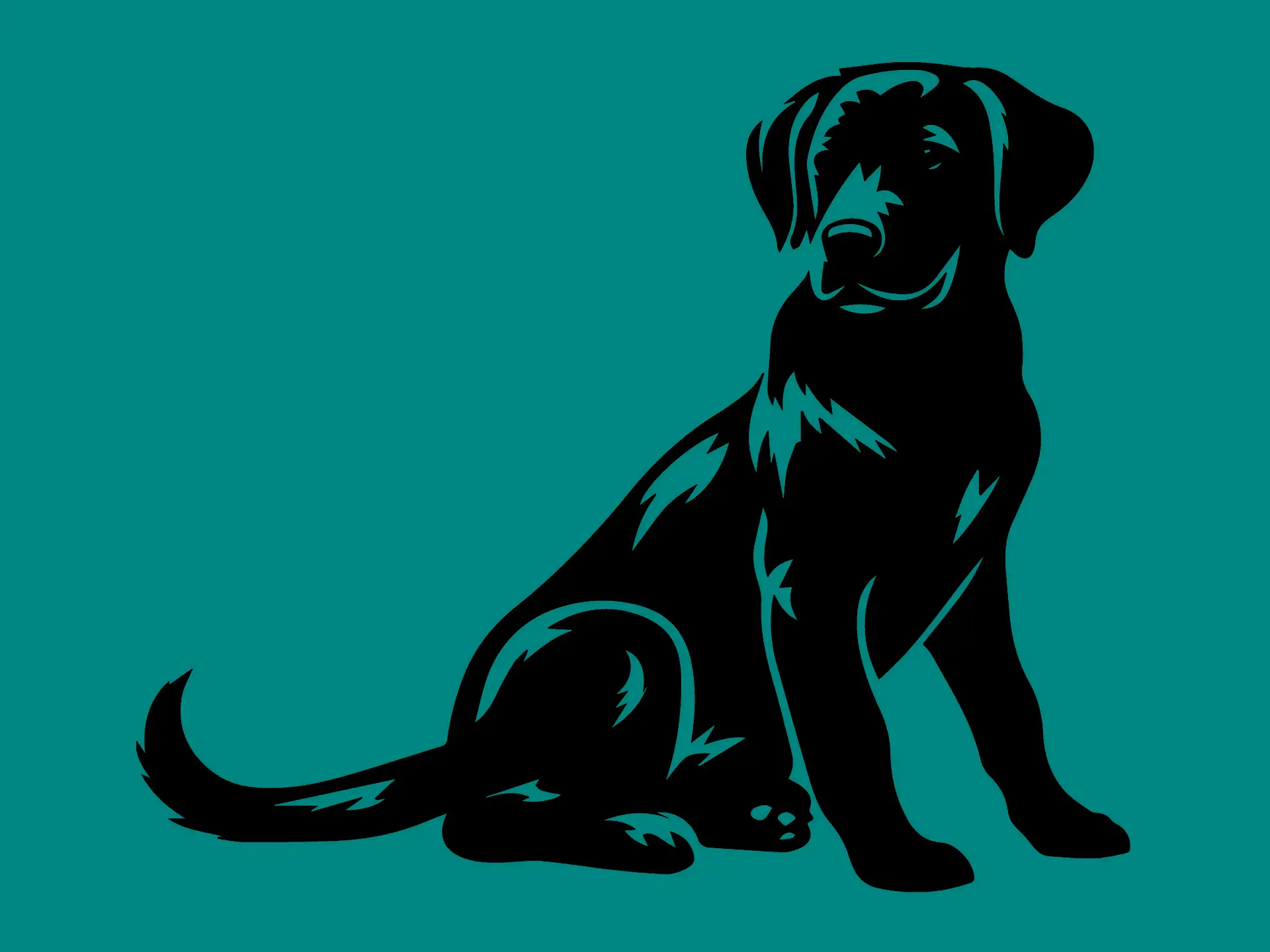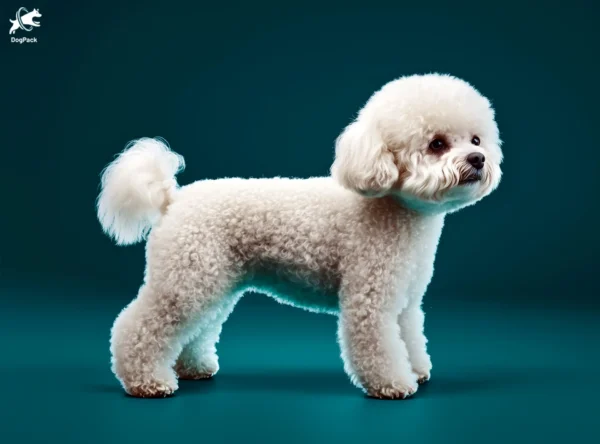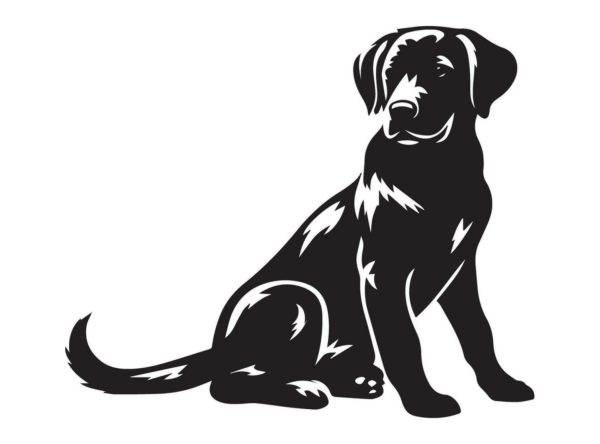- Poodle Dog Breed Info & Overview
- Characteristics
- Pictures
- 📏 Full Size Breakdown for All Poodle Types
- Breed History
- Temperament, Personality
- Physical Characteristics
- Health Issues
- Grooming Needs
- Exercise Requirements
- Training Tips
- Nutrition, Diet
- Adoption, Breeders
- Family Pet?
- Right For You?
- Conclusion
- FAQs
- Breed Ratings
Poodle Dog Breed Info & Overview
The Poodle is one of the world’s most intelligent and versatile dog breeds, prized for its hypoallergenic coat, loyal temperament, and eye-catching elegance. Available in Toy, Miniature, and Standard sizes, Poodles adapt well to various lifestyles—thriving with families, singles, and seniors alike. Their combination of brains, beauty, and affection makes them a perennial favorite.
Characteristics
Pictures
📏 Full Size Breakdown for All Poodle Types
- Standard Poodle: Official full-size version
- Miniature Poodle: Mid-sized, ideal for apartments with energy
- Toy Poodle: Smallest size, more companion-focused
- Royal Poodle: Oversized Standard (not officially recognized)
- French Poodle: Often a synonym in certain regions (not a separate breed)
| Type | Height | Weight |
|---|---|---|
| Standard Poodle | 20–28 in (51–71 cm) | 50–75 lbs (23–34 kg) |
| Miniature Poodle | 10–15 in (25–38 cm) | 10–18 lbs (4.5–8 kg) |
| Toy Poodle | Under 10 in (25 cm) | 4–6 lbs (1.8–2.7 kg) |
| Royal Poodle (Oversized Standard) | 25–30+ in (64–76+ cm) | 60–90+ lbs (27–41+ kg) – unofficial range |
| Teacup Poodle (Not officially recognized) | Under 9 in (23 cm) | 3–5 lbs (1.4–2.3 kg) |
Breed History
Tracing its lineage back to water-retrieving dogs in Germany, the Poodle breed later gained immense popularity in France, where it was refined into a symbol of elegance. Nobility adored these stylish companions, showcasing them at royal courts. Over centuries, the name’s origin likely stems from the German word “Pudel,” meaning “to splash,” reflecting their skill in retrieving waterfowl.
From duck hunter to fashionable companion, their adaptability became legendary. Aristocratic families weren’t the only ones who valued these dogs: street performers trained them to entertain crowds with comedic acts. This versatility helped the breed spread across Europe and beyond, leading to the development of multiple sizes tailored to different needs and living conditions.
Modern popularity soared when show enthusiasts embraced the flamboyant grooming styles we see in competitions. Despite the fancy aesthetics, these dogs never lost their original working roots. Today, many historians assert that the small dog breeds were variations to accommodate city living, while larger types remained faithful duck retrievers in hunting circles.
Temperament, Personality
Known for razor-sharp intelligence, this breed quickly learns new tricks and thrives on mental stimulation. People often describe them as alert yet sociable, making them wonderful companions for active households. They excel in agility sports, puzzle toys, and even trick training, reflecting a strong desire to please their human family members.
Although typically friendly, these dogs can be reserved around strangers without proper socialization. Once they warm up, expect unwavering loyalty and a playful demeanor. Because they’re so intuitive, they often sense their owner’s emotional state, offering comfort when needed. This empathy makes them fantastic therapy dogs in hospitals and nursing homes.
While not overly aggressive, the Poodle can develop nuisance behaviors if bored. They might bark excessively or become destructive when deprived of companionship and structure. Regular play sessions and positive reinforcement keep them mentally balanced. They also fare well in multi-pet households, bonding easily with other friendly dogs and even cats.
Physical Characteristics
This breed is celebrated for its signature curly coat, which can range from tight ringlets to loose waves. Many believe the distinct trim styles serve practical hunting purposes, protecting joints and vital areas. Coat colors include black, white, brown, apricot, and various parti-color combinations, adding an element of visual diversity.
The breed’s general physique is squarely built, with an elegant posture. A proud carriage and a long, graceful neck often distinguish them from other medium dog breeds. Their ears flop close to the head, framing a bright expression that exudes keen intelligence. Well-muscled legs provide agility, whether performing tricks or participating in canine sports.
Although sizes vary—Toy, Miniature, Standard, and the unofficial Royal—most share a balanced structure. The Poodle’s refined head shape, straight muzzle, and dark oval eyes showcase an alert, dignified appearance. Their curled tail, whether docked or natural, typically stands high, further emphasizing poise. Even smaller types maintain the same overall proportions and regal aura.
Health Issues
Although generally robust, this breed can inherit specific conditions like hip dysplasia and progressive retinal atrophy. Regular veterinary check-ups are crucial to catch these ailments early. Poodle owners often focus on preventative care, including eye exams and joint supplements, to support long-term well-being and minimize discomfort.
Another known issue is Addison’s disease, a hormonal imbalance that requires ongoing treatment. Symptoms can be subtle, so prompt diagnosis makes a huge difference in managing quality of life. These dogs might also be predisposed to bloat, especially the bigger varieties, making it essential to monitor meal times and limit rigorous activity afterward.
To maintain optimal health, schedule routine blood tests, heart screenings, and dental care. Reputable breeders will provide health clearances for parents, ensuring potential genetic issues are minimized. Ultimately, the key lies in proactive measures like balanced diets, low-stress environments, and regular check-ups—keeping this vivacious breed comfortable and ready for life’s adventures.
Grooming Needs
Famed for a coat that rarely sheds, this dog demands a diligent grooming routine. Most owners opt for professional clipping every four to six weeks, especially for show cuts. Brushing at home between salon visits is vital to prevent matting and keep the curls bouncy. A well-maintained coat helps reduce dander and potential allergens.
Because of their non-shedding coat, regular ear and skin checks are also essential, as trapped moisture can lead to infections. Keep the ear canals clean and dry, especially after swimming or baths. Nails should be trimmed monthly to avoid overgrowth and discomfort, while teeth benefit from daily brushing and routine dental cleanings.
Although it requires more effort than many low-shedding dog breeds, the Poodle’s grooming regimen can be enjoyable with the right tools and patience. Establish a consistent schedule from puppyhood to foster a positive experience. Good hygiene practices not only keep the coat looking fabulous but also boost overall health and well-being.
Exercise Requirements
Despite an elegant reputation, this dog brims with energy and needs daily outlets. Activities like brisk walks, fetch in the yard, or interactive puzzle games help burn off steam. For the more athletic types, advanced dog sports such as dock diving or agility can provide a rewarding challenge and strengthen the bond.
Standard versions typically have higher stamina, requiring longer exercise sessions than Toy or Miniature counterparts. Yet, all variations thrive on structured activities and mental engagement. The best approach balances physical play, such as frisbee or jogging, with cognitive games that tap into their intelligence—ensuring a well-rounded, content companion.
Owners should adjust routines based on individual personalities: some may relish endless fetch, while others prefer leisurely strolls. The Poodle often benefits from swimming, given its water-retriever heritage and joint-friendly exercise. Regardless of size, proper exercise keeps muscles toned, weight in check, and boredom at bay for this active-minded breed.
Training Tips
Thanks to keen intelligence, this breed picks up commands with remarkable speed. That said, consistency and positive reinforcement are paramount. Harsh methods can backfire, leading to fear or stubbornness. Short, focused sessions work best, particularly when sprinkled with treats, praise, or playtime. Early socialization ensures they grow into well-mannered, confident companions.
They excel in advanced obedience and trick training, often surpassing other large dog breeds in competitions. Break down new behaviors into smaller steps to avoid overwhelming them. Because they catch on quickly, you might need to switch up routines to keep it interesting. Incorporate variety with fetch, hide-and-seek, or puzzle toys during sessions.
With the Poodle, it’s wise to address barking early, as they can be vocal when excited or protective. Teach a ‘quiet’ command and reward silence promptly. Building confidence through social outings and new environments curbs anxiety-driven behaviors. In return, they repay consistent guidance with unwavering loyalty and a quick, enthusiastic response to commands.
Nutrition, Diet
Most adult Standards thrive on roughly 2.5 to 3 cups of high-quality, protein-rich kibble daily, split into two meals. Minis and Toys generally require 1 to 1.5 cups, depending on activity levels. Look for formulas designed for active, intelligent dogs, prioritizing fish oils or flaxseed for coat health and joint support.
Puppies benefit from specialized diets with balanced calcium and phosphorus, supporting steady bone development. Overfeeding can lead to rapid growth in larger pups, potentially straining joints. Monitor weight gain by running your hands along the ribs to ensure they remain palpable under a light fat layer. Adjust portions accordingly to prevent obesity.
For the Poodle keen on performance or dog sports, consider diets with moderate fat content for sustained energy. Always incorporate fresh produce like blueberries or spinach for antioxidants. Avoid excessive table scraps, as this breed is prone to pancreatitis if fed overly rich foods. When in doubt, consult a veterinary nutritionist.
Adoption, Breeders
Start your search by exploring breed-specific rescues that prioritize rehoming. These organizations often conduct health evaluations and temperament tests. Online directories, such as Petfinder or Poodle Club of America, are also valuable. Adoption can be rewarding, especially if you’re seeking an older dog already accustomed to home life.
When working with breeders, verify health clearances for hips, eyes, and other hereditary concerns. A reputable source will discuss the puppy’s lineage, offer references from past customers, and welcome visits to their facility. Avoid places that rush sales or hesitate to show living conditions. Quality breeders prioritize socialization and long-term well-being above profit.
Those seeking a purebred Poodle might consult national kennel clubs or join local meetups for personal recommendations. Always ask about the dog’s medical background and any breed-specific tests performed. Opting for an ethically sourced puppy or rescue ensures you’re supporting responsible practices while welcoming a healthy, well-adjusted companion into your home.
Family Pet?
Renowned for adaptability, these dogs fit well into households of various sizes and energy levels. Children often adore their playful antics and ability to learn entertaining tricks. Supervised interaction, especially for younger kids, ensures gentle handling on both sides. With proper introductions, they can coexist harmoniously with cats or smaller pets.
Active families might enroll in weekend training classes, giving the dog plenty of mental and physical stimulation. The Poodle genuinely thrives when included in everyday activities, like movie nights or backyard barbecues. This desire for companionship makes them an ideal choice for parents seeking an interactive pet that loves to entertain.
Despite their family-friendly traits, gentle guidance is crucial, particularly around babies or toddlers who may tug on fur. Offering a safe space, like a crate or quiet corner, helps them recharge. Overall, a well-socialized member of this breed delights in social gatherings, thrives on praise, and enriches the household with lively charm.
Right For You?
If you desire a dog that’s both brainy and stylish, this breed stands out. Individuals who can commit to regular grooming and daily exercise will see their efforts rewarded with a loyal companion. On the flip side, those lacking time for interactive engagement may find the high needs overwhelming, leading to frustration on both ends.
The Poodle’s versatility spans from city apartments to country homes, but all varieties need mental challenges to prevent boredom. Owners who enjoy teaching new tricks or participating in dog clubs will find this breed exceptionally rewarding. Before committing, consider whether you can provide consistent intellectual stimulation and a structured daily routine.
Families with children, seniors seeking gentle companionship, and active couples all benefit from this breed’s adaptable nature. However, a higher investment in grooming and training is non-negotiable. If you relish a challenge and can devote ample time to care, you’ll discover an intelligent pet that never fails to fascinate and amuse.
Conclusion
Elegant, intelligent, and endlessly adaptable, the Poodle is a timeless choice for those seeking a devoted companion. Whether you opt for a Toy, Miniature, Standard, or even the Royal variety, you’ll enjoy an alert, trainable dog that forms deep bonds with its family. However, the commitment to frequent grooming and consistent mental stimulation shouldn’t be overlooked. For owners prepared to meet these needs, the payoff is significant: a loving friend who excels in everything from therapy work to agility courses. Families, single professionals, and seniors alike can find a perfect match in this breed’s versatility and undeniable charm. Embrace the curls, and you’ll discover a loyal partner that elevates everyday life.
FAQs
-
What are the different types of Poodles in the Poodle breed family?
The Poodle breed family includes the Standard Poodle, Miniature Poodle, and Toy Poodle. While all share the same ancestry and traits, their sizes and some lifestyle needs differ. Designer mixes like the Labradoodle and Maltipoo also trace back to Poodle lineage.
-
Why are Poodles used in so many hybrid dog breeds?
Poodles are often chosen for crossbreeding due to their intelligence, low-shedding coat, and adaptability. Their traits blend well with other breeds, creating popular hybrids like the Goldendoodle, Cavapoo, and Sheepadoodle, valued for both looks and temperament.
-
What makes the Poodle breed family suitable for dog sports?
The Poodle breed family excels in dog sports thanks to their high intelligence, athletic build, and eagerness to learn. They often compete in agility, obedience, and even dock diving, showcasing their versatility beyond traditional show rings.
-
How old is the Poodle breed and where did it originate?
Despite popular belief, Poodles originated in Germany, not France. The breed dates back several centuries and was originally used as a water retriever. Over time, it became popular across Europe for both hunting and companionship.
-
Is there a difference between French Poodles and Standard Poodles?
“French Poodle” is a nickname often used for the Standard Poodle, especially in the U.S. However, there’s no separate breed. The term simply reflects the breed’s popularity in France, where Poodles became fashion icons and performers.
Breed Ratings
The Poodle stands among the smartest of all breeds, picking up complex tasks rapidly and thriving on mental challenges.
Bursting with energy, this breed adores games and interactive toys, often acting like a fun-loving clown to amuse everyone around.
The Poodle has a moderately high drive, requiring daily walks and stimulating play, but can adapt to calmer routines if necessary.
Low shedding is a hallmark of this curly-coated breed, making cleanup easier, though regular grooming is still a must.
Originally bred for water retrieval, the Poodle may chase small animals but usually responds well to training and redirection.
Despite minimal shedding, intricate coat care and frequent trims require extra effort, so be prepared for dedicated grooming sessions.
Quick learners by nature, Poodles shine in obedience and advanced tricks, especially with consistent, reward-based training methods.
This social breed prefers company and can develop anxiety or destructive habits if left isolated for extended periods.
Poodles can be alert barkers, especially without adequate exercise, but training and mental engagement help reduce nuisance vocalizations.
Salivation is minimal, making this breed a clean choice for owners who prefer fewer slobbery messes around the house.
Generally sociable and eager to engage, most Poodles play well with other canines, especially when socialized early in life.
With proper screening and care, this breed enjoys a robust life, though issues like hip dysplasia and eye problems can occur.













